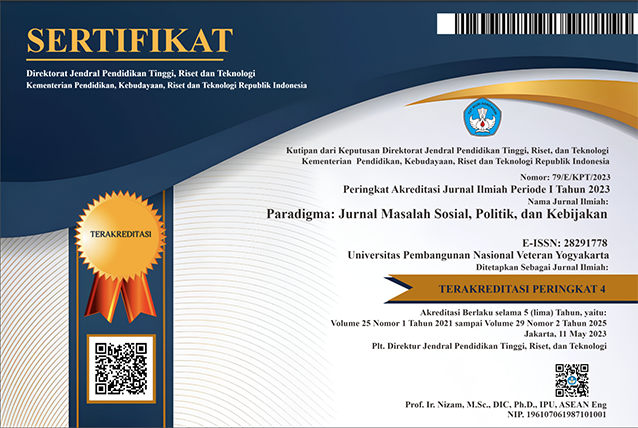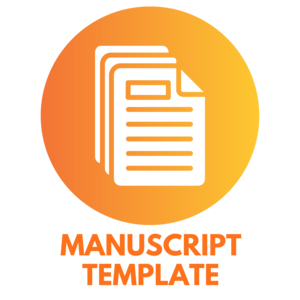Konflik Otonomi Khusus Papua Dan Dampaknya Terhadap Hubungan Pusat Dan Daerah Di Indonesia
DOI:
https://doi.org/10.31315/paradigma.v20i1.2444Keywords:
Conflict, special autonomy, relations between center and region, Papua, IndonesiaAbstract
Indonesia is a unitary state that introducing special autonomy since 1999. This policy is outlined in MPR Decree number IV on the Guidelines of State Policy in 1999-2004 to the rst of the General Assembly 14 to 21 October 1999. However, the problem from to turn the power of the President Abdurrahman Wahid, untill President Susilo Bambang Yudhoyono is still being questioned. It is because the views of people on the Indonesian government in contrast to the views of the people of Papua. View of the government, autonomy is de ned as the power to control and take care of the housekeeping area, which is attached to a unitary state like any in the federation. In a unitary state, regional autonomy is more limited to the countries that form the federation. The authority to control and take care of the household in a unitary state area includes all governmental authority except some matters that are held by the central government such as international relations, justice, nance, defense and security. Meanwhile, the views of the people of Papua, autonomy means that all the demands that have the rule of law, peace, and can solve the major problems facing the people of Papua.
But the decision of the DPR RI relating to the special autonomy Papua were affecting the position of the people of Papua, giving rise to their desire for independence. Resolving these problems, some measures have been taken by the Indonesian government including: (1) Papua divided to be more two provinces; (2) the establishment of the Papuan People’s Assembly (MRP) as a condition for the implementation of special autonomy and (3) the provision of development funds in accordance with the special autonomy law. However, all of the policies that the central government is sometimes also lead to new con icts (such as the division of Papua that has cost the lives of the people of Papua). Why the con ict in Papua has not been resolved even though the various policies have been rati ed?
Downloads
Published
How to Cite
Issue
Section
License
The manuscript submitted to Paradigma: Jurnal Masalah Sosial, Politik, dan Kebijakan journals are released under the license of Creative Commons Attribution-Non Commercial- ShareAlike (CC BY SA) if and when the article is accepted for publication.
We declare that:
- This paper has not been published in the same form elsewhere.
- It will not be submitted anywhere else for publication prior to acceptance/rejection by this Journal.
- A copyright permission is obtained for materials published elsewhere and which require this permission for reproduction.
Retained Rights/Terms and Conditions
Authors retain all proprietary rights to the published works, such as (but not limited to) the following rights:
- Copyright and other proprietary rights relating to the article, such as patent rights,
- The right to use the substance of the article in own future works, including lectures and books,
- The right to reproduce the article for own purposes,
- The right to self-archive the article
The right to enter into separate, additional contractual arrangements for the non-exclusive distribution of the article's published version (e.g., post it to an institutional repository or publish it in a book), with an acknowledgment of its initial publication in this journal Paradigma: Jurnal Masalah Sosial, Politik, dan Kebijakan



